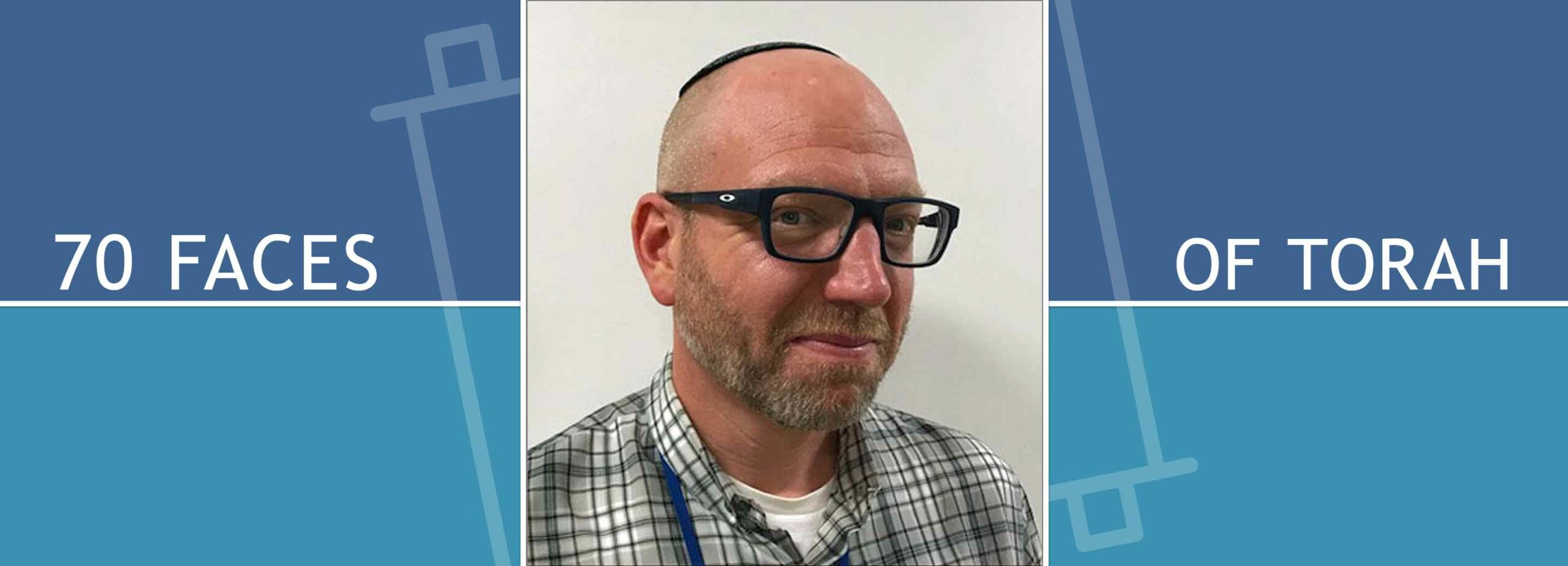Deuteronomy How Moses Comes to Terms with Mortality

Parashat Vayelech (Deuteronomy 31:1-30)
In my work as a geriatric chaplain in a Jewish setting, I have found that the story of Moses’s death — and God’s decision to deny him the satisfaction of entering the Promised Land — often resonates with people who are themselves struggling with the reality of their own mortality. One man in particular, a regular attendee of religious services who died recently, would begin raising questions about God’s justice whenever the topic of Moses’s death arose throughout the books of Numbers and Deuteronomy. I can only wish that I recognized at the time how clearly his complaints reflected his own fear and rage in the face of his own inescapable demise. If I had, I might have suggested that we read Parashat Vayelech, this week’s Torah portion, together, to see how Moses himself moved from the desperate pleadings of Parashat Vaethanan to the calm reassurance of a man who has come to terms with death.
The first words of the portion, Vayelech Moshe — “Moses went,” hints at this shift. Commentators debate as to where in fact Moses went, but quite possibly the movement in question is psychological rather than physical, especially since his first words to the Israelites here include an acknowledgement that he can no longer function as he once did: “And he said unto them: I am a hundred and twenty years old this day; I can no more go out and come in; and the LORD hath said unto me: Thou shalt not go over this Jordan” (Deut. 31:2)
Rashi suggests that Moses’s invocation of his birthday indicates that his days and his years have filled out — that this day, according to tradition it is 7 Adar, will also be the day of his death. He knows he has reached the end of his life and the end of his leadership (which is how Rashi understands his inability to go out and come in rather than any physical frailty), so he states without bitterness that he will not cross the Jordan. He goes on to assure the Israelites that God, along with his successor Joshua, will cross over with them. He closes his brief address with the words: “Be strong and of good courage,” assuring the Israelites that God will not forsake them.
Turning his attention to Joshua, but still speaking in front of the people, Moses repeats this imperative (now in the singular): “Be strong and of good courage,” giving Joshua his charge to lead the people and to apportion the land among them. As with the Israelites as a whole, God will be with Joshua, and will not forsake him.
In this initial section of the parasha, Moses is occupied not with his own death or his feelings of loss, but with his concern for the people, who will soon face the unknown without him. They can still recall the generation of the spies, their parents who were unable to meet God’s challenge to occupy the land God promised to them. As Moses will point out later (see Deut. 31:27), even in his presence the people struggle to resist the lure of idolatry. What will happen once he, their leader and primary bulwark against God’s towering rage, has passed from the scene? Thus he reassures and encourages his people rather than bemoaning the unfairness of his own fate.
Towards the end of the parasha, Moses, speaking privately to Joshua, again repeats what now feels like a mantra: “And he gave Joshua the son of Nun a charge, and said: ‘Be strong and of good courage; for thou shalt bring the children of Israel into the land which I swore unto them; and I will be with thee’” (Deut. 31:23)
Or is it Moses who speaks these words? Although the clear antecedent of the verb “and he gave…a charge” is Moses, Rashi and other commentators are quick to insist (as are most of my students when we study this passage) that God speaks these words, the first time God has addressed Joshua directly. If that is so, God echoes Moses’s encouragement, repeating the words “be strong and of good courage,” which God will repeat to Joshua three more times in the first chapter of the latter’s eponymous book.
In that first chapter, however, God comes to Joshua, who is described as Moses’s servant, after Moses has died, suggesting that this is the first time God speaks to Joshua directly. Read this way, the earlier statement is Moses speaking on behalf of God (which is not unusual in the Torah or the Prophets). This dual voice gives this statement an additional resonance: not only will God be with Joshua in the Promised Land, but Moses will be there as well — not in any physical way, but spiritually, as the human source of the divine teaching that will guide the Israelites’ path through the challenges that lie ahead.
Significantly, the words of Moses’s refrain, hazak v’ya-ameitz, echo the words of the final verse of Psalm 27, hazak v’ya-ameitz libeka — “be strong and let thy heart take courage”–which Jews read every day from the beginning of the month of Elul to prepare for the High Holidays. Vayelech also helps us prepare for the Yamim Nora’im, since the Torah-reading cycle places it either just before Rosh Hashanah or, as is the case this year, between Rosh Hashanah and Yom Kippur.
Every year, we, like the Israelites on the cusp of the Promised Land, like Joshua taking on the mantle of his great predecessor, like Moses himself, facing his own mortality, face the unknown, the awesome realization that we do not and cannot know the future. We know only that it will not be easy; that we, despite our best efforts, will stray from the path; and that we, even if we are healthy, never know when our lives will end. So through liturgy like Unetaneh Tokef and the symbolic death of our Yom Kippur rituals of self-denial, we stare into the abyss of our own mortality. The drama of Moses’s death provides a model for that process. We echo both God and Moses in our exhortation to ourselves and others to be strong and of good courage — that we will survive the ordeal of symbolic death on the high holidays (even as we know that our physical survival is only temporary) and that in leaving our descendants with encouragement and assurances (rather than focusing solely on our fear of own mortality), we ensure our spiritual survival.
Rabbi Jim Morgan is a 2008 graduate of the Rabbinical School of Hebrew College. He serves as Chaplain at Center Communities of Brookline, MA, a division of Hebrew SeniorLife.
Learn more  about Hebrew College’s rabbinic, cantorial and rav-hazzan programs at our Open House & Day of Learning, Ta Sh’ma (Come & Hear), on November 18, 2019.
about Hebrew College’s rabbinic, cantorial and rav-hazzan programs at our Open House & Day of Learning, Ta Sh’ma (Come & Hear), on November 18, 2019.

